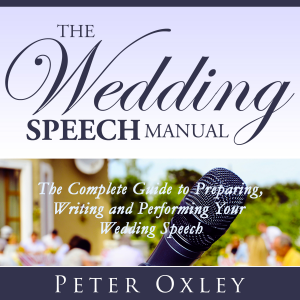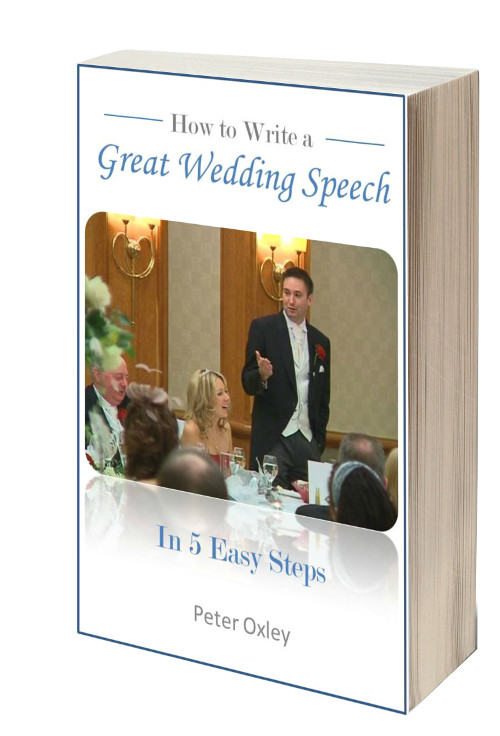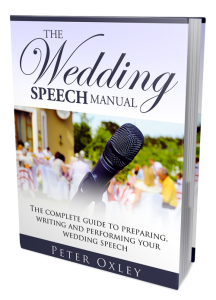10 Ways to Beat Wedding Speech Nerves
You are not the first person to do a speech, nor will you be the last. Plenty of people have done this and survived, including some of the people who will be in the audience. The fact that you’re doing a speech at a wedding means that you’ll have at least some supporters, whether they’re your family (if you’re groom / bride / father of bride / mother of bride) or your friends (best man / maid of honour). So relax – it’s not like you’re a stand-up comic in a room full of hostile strangers!
2. Everyone will be rooting for you
No one wants a speaker to fail, not even the most hard-hearted of people. Think back to when you’ve watched someone speak in front of a crowd, especially if you saw someone struggle. You were willing them to succeed, right? It is normal human instinct to want to see people do well, and you will benefit from this. Especially when you consider that you’re speaking at a wedding, where people have come together to celebrate a happy event.
3.Take comfort in your preparation
If you’re reading this in advance of the day, then this means you’re doing at least some preparation. Remember, there’s no such thing as over-preparing and over-practicing your speech. It will pay dividends on the day. Don’t worry about losing spontaneity or anything like that – if you know your speech back-to-front then that’s one less thing for you to worry about on the day.
4. Your nerves will not show
People always worry that their blushes or shaking hands or dry mouth will be really obvious to everyone watching. I have a secret for you – no one will notice. This I can promise you – any symptoms of nerves always feel at least ten times worse to you than they appear to others.
5. Take deep breaths
A great way to calm yourself down and help you focus is to take a series of long, slow deep breaths. Do this every time you find yourself getting too nervous and also just before you’re due to stand up. Simple but very, very effective.
6. What’s the worst that can happen?
Keep it in perspective. You’re just doing a speech, nothing more horrible than that. If the absolute worst happens, then it’s hardly going to ruin the day, in the same way as if the bride doesn’t turn up, or everyone gets food poisoning, or the venue falls down. Yes, you should try and do the best job you can, but don’t get carried away in thinking that everything hinges on your one speech.
7. What if it goes well??
Linked to the above point, rather than dwelling on how bad everything could be, imagine how amazing it could all go. Visualise everyone clapping, cheering, patting you on the back, congratulating you. And if you think this is a bit too new-age and wishy-washy, just remember that pretty much every successful sportsperson uses this technique to get them the outcome they want to achieve…
8. Nerves can be your friends
Rather than being something horrible to be feared and fought, nerves can actually help you. They drive you on to prepare and do a good job. They release loads of adrenaline to get you up and moving and talking nice and loudly. So don’t fight them, accept them as a helpful part of your armoury.
9. Avoid alcohol
It can be tempting to have a bit of “Dutch Courage” to settle the nerves. Don’t overdo it. Alcohol impairs judgement and hinders your performance, and in this case I mean your ability to stand up without swaying and speak without slurring. So save it as a reward for a job well done after you’ve finished speaking.
10. Smile and enjoy!
The hardest part of doing any form of public speaking is the anticipation and starting to speak. So when your time comes take a deep breath, give them a big smile and dive straight in – don’t think about it. And try to enjoy – you never know, you just might…!!







